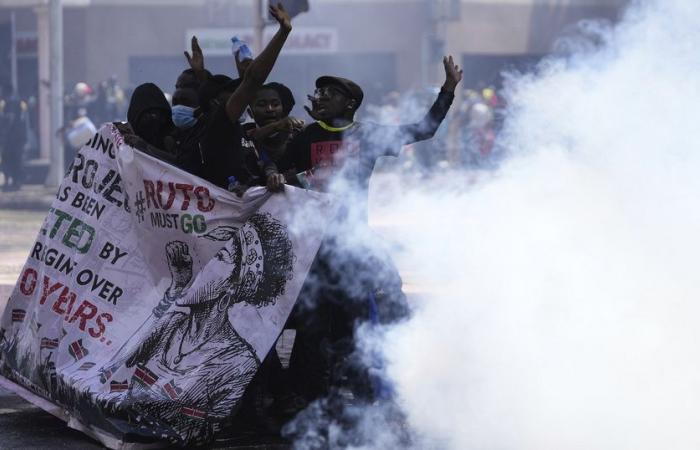The president of Kenya came to power by appealing to the common people, describing himself as a “resourceful” and promising to ease economic hardship. But Tuesday’s deadly chaos in the capital, Nairobi, shows how support for him has crumbled.
Part of Parliament burned as protesters rushed inside and MPs fled. Bodies lay in the streets, and caregivers and observers said police opened fire. The army has been deployed.
A youth movement warned the president’s government William Ruto against the adoption of a finance law which, according to them, would worsen the economic difficulties Kenyans. The deputies still adopted it. Mr Ruto is expected to sign it, even though religious leaders have called it“unjustified”.
Here’s a glimpse of the turmoil in the most stable democracy in East Africa and the most serious attack on the Kenyan government in decades.
From internet data to layers
The finance bill was intended to increase or introduce taxes or fees on a series of everyday items and services, such as internet datathe fuelTHE Bank transfers and the couches. Some measures were removed as anger grew. The proposals are part of the Kenyan government’s efforts to generate $2.7 billion in additional domestic revenue.
The government says these changes are necessary to pay interest on the this nationalreduce the budget deficit and ensure the functioning of the State. Protesters see them as punitive because the high cost of living already makes life difficult.
The 2023 Finance Bill signed by Mr Ruto was also unpopular, as it included a payroll tax for housing, but the anger was nothing comparable.
A protest led by young people
Young Kenyans have organized themselves on social mediaorganizing peaceful protests in the streets to force the authorities to abandon this finance bill. The protests began on June 18, after the bill was first made public.
They started in Nairobi, but have spread to other parts of Kenya, including Mombasa, a city located on Indian Oceanand even in Eldoret, a town in the region of rift valley which has been a bastion of support for the president.
Kenya’s political opposition stormed out of Tuesday’s session at which the bill was passed.
Ruto remis in question
William Ruto, elected in 2022, has repeatedly urged all Kenyans to pay their fair share of taxes. Some Kenyans now mock him by calling him “Zacchaeus”in reference to the biblical tax collector Zacchaeus. Many consider its aggressive position as a form of dictatorship which is not in tune with the realities of ordinary people.
In 2023, after the courts blocked some of his tax proposals, the president threatened to ignore the court rulings. This sparked criticism from the Law Society of Kenyawhose leader accused Mr Ruto of considering himself above the law.
Pro-democracy activists have warned that Ruto’s attacks on the judiciary indicate a authoritarian tendency. Some see similarities between Ruto and his mentor Daniel arap Methe former president who led Kenya during a long period of one-party rule.
Ordinary man, private jet
During his presidential campaign, Mr Ruto presented himself as the establishment candidate and pledged to implement policies aimed at putting more money in the pockets of Kenyans. But the “resourceful” Those who supported him were dismayed when his government scrapped crucial fuel and electricity subsidies. corn flour. Many Kenyans saw this as a betrayal.
Ruto, now fabulously wealthy, frequently urges Kenyans to tighten your seatbelt. But his state visit to the United States in May sparked controversy when he chartered a luxury private jet instead of using the presidential jet or the Kenyan national airline. Mr Ruto later said the chartered jet was paid for by friends he did not name.






